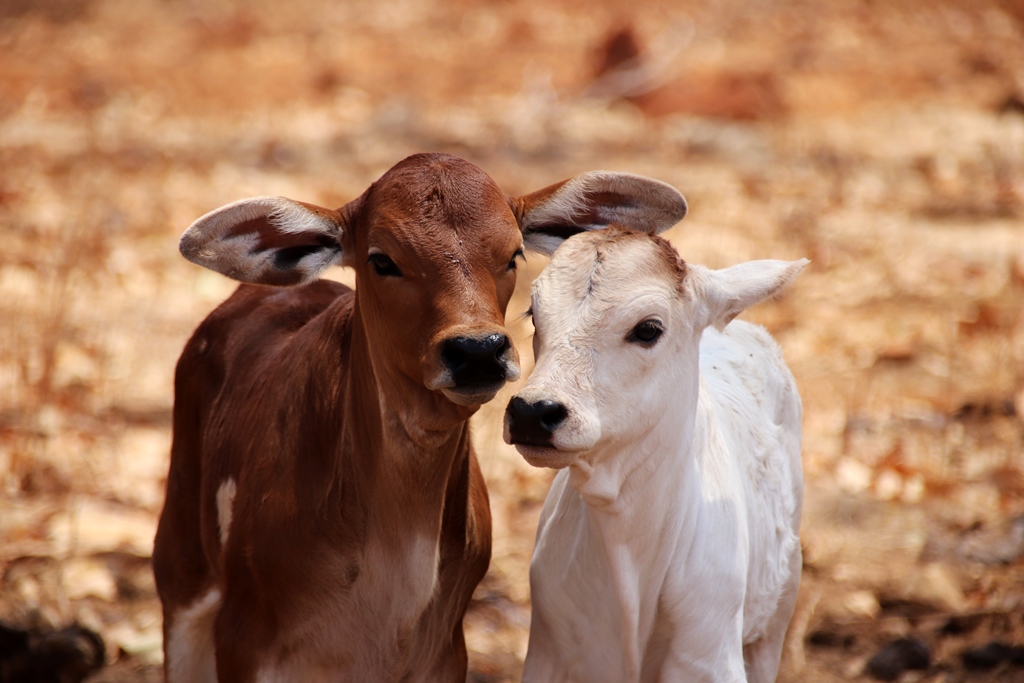Coccidiosis at weaning
Coccidiosis, also referred to as weaning scours or black scours, is caused by a protozoal parasite known as Eimeria. There are several species of this parasite, and they can cause severe diarrhoea in cattle (usually in weaners), which impacts health and production and in severe cases can lead to death. Cattle generally become infected when they are young, picking up the parasite eggs from the environment, having been passed by other infected cattle (often from their mother).
These eggs can have a very varied survival time in the environment; in hot, dry conditions survival may only be a few weeks, while in ideal conditions, can survive for up to 2 years. Once the eggs are ingested, the parasite lives in the small and large intestines. Over time cattle develop an immunity to the parasite, which is why sickness is most often observed in young animals, as older animals have developed immunity.
While calves can be exposed to the coccidiosis parasite any time after birth, it usually requires a stress event to cause sickness. Stress events can suppress the calf’s immune system and allow the parasite to multiply. If the parasite multiplies to large numbers, it can cause damage to the cells in the intestines, which leads to the dark, foul smelling diarrhoea. But what are these stress events? Weaning and the associated change in diet and environment is the most common stress that causes coccidiosis. Other stress events could be a sudden change in weather, poor nutrition or infection with another illness.
So how can you stop coccidiosis from becoming a problem?
Ensuring good nutrition is available can reduce the chance of nutritional stress. Avoid overcrowding in yards and paddocks for prolonged periods of time, as this will result in an increased parasite burden in these areas. Feeding coccidiostats, such as Monensin, at the time of weaning can also help reduce the chance of sickness.
If you suspect you have a problem with coccidiosis, it can be diagnosed by collecting a fresh faecal sample and sending it to a veterinary laboratory, where they will analyse it for coccidiosis oocyts (eggs). If animals are showing signs of coccidiosis (eg. diarrhoea) and have oocyst counts >5,000 then coccidiosis is the likely cause. High oocyst counts in themselves don’t mean that there is a problem as some animals can have quite high faecal oocyst counts without showing any symptoms of coccidiosis.
So you found out you have coccidiosis, what next?
If an outbreak occurs, affected animals should be separated from the mob and given access to clean water in a trough, and high quality feed preferably in a raised trough. Supplying feed and water in raised troughs help reduce the chance of contamination with faeces, and therefore reduces the chances of the animals ingesting more eggs. Electrolytes can also be added to the water. The feeding of Monensin as a feed additive, as well as being a preventative, can also aid in the treatment of coccidiosis. Sick animals can be treated with veterinary products such as Baycox®, which contains Toltrazuril. It is given as an oral drench and kills the organisms in about 4 days.
Summary of good weaning management to prevent coccidiosis
- Ensure that weaners have good nutrition and access to a supplement (block or pellets) containing a coccidiostat (eg. Monensin or Lasalocid) as a preventative measure.
- Don’t hold weaners in the yards for long periods (the shorter the better). Avoid overcrowding in yards and consider segregating weaners on size to prevent bullying.
- Try to ensure that the feed in yards is clean and reduce the risk of contamination of feed by infected animals (eg, use hay feeders or troughs so that animals are not eating off the ground where feed could be contaminated with faecal matter).
- Try to reduce other stresses that may compromise the immune system (eg, treat animals for intestinal worms if they are considered likely to be a problem).
- Segregate affected animals.
- Treat sick or at risk animals with a product like Baycox® that kills the organisms that cause coccidiosis.
If you suspect Coccidiosis is a problem in your herd, consult your local veterinarian for advice.

